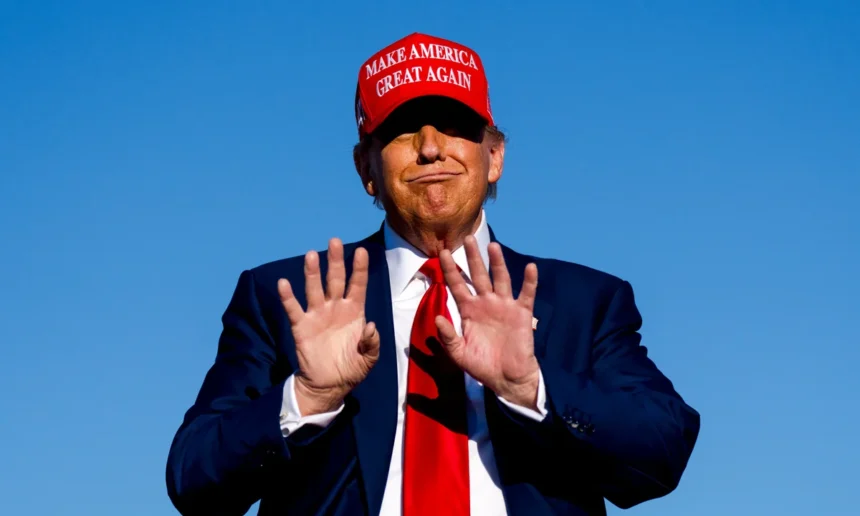The MAGA hat has become one of the most recognizable symbols in contemporary American politics. A simple red cap emblazoned with “Make America Great Again” has sparked intense debates, fervent support, and passionate opposition. For many, it represents a rallying cry for change; for others, it’s a trigger for deep-seated divisions. As political landscapes evolve, the MAGA hat’s role continues to provoke thought and dialogue about what it truly signifies in today’s society. Let’s delve into its origins, controversies, and lasting impact on modern political discourse.
History of the MAGA Hat and its Association with Donald Trump
The MAGA hat, an iconic red cap emblazoned with “Make America Great Again,” emerged as a powerful symbol during Donald Trump’s 2016 presidential campaign. It quickly became synonymous with his vision for America, evoking nostalgia for a perceived golden age.
Originally used by Ronald Reagan in the 1980s, the phrase was revived by Trump to resonate with voters yearning for economic revival and national pride. The bright red color made it instantly recognizable and easily associated with bold statements.
Worn by supporters at rallies and events, the hat transcended simple merchandise; it transformed into a rallying cry. Followers proudly donned them as badges of honor, signifying loyalty to Trump’s agenda. This simple accessory fueled discussions around identity politics and populism while challenging traditional political imagery in surprising ways.
The Controversy Surrounding the MAGA Hat
The MAGA hat has become a polarizing symbol in American politics. Initially embraced by supporters of Donald Trump, it quickly garnered attention for sparking intense debates.
Critics argue that the hat represents divisive sentiments and policies. Many associate it with nationalism and exclusionary practices. For some, wearing the MAGA hat signals support for controversial ideologies.
Supporters, on the other hand, see it as an emblem of pride and patriotism. They view it as a call to restore traditional values and promote American interests.
Incidents involving wearers of the MAGA hat have also fueled tensions. High-profile confrontations often highlight broader societal issues surrounding race, immigration, and identity politics.
As conversations around freedom of expression continue to evolve, the MAGA hat remains at the center of this discourse—reflecting deeper rifts within society while igniting passionate responses on both sides.
Symbolism of the MAGA Hat in Modern Political Discourse
The MAGA hat has become a powerful emblem in contemporary political dialogue. For many, it represents a call for American nationalism and traditional values. It’s more than just merchandise; it’s a statement of identity.
Wearing the hat can signal solidarity with specific political ideologies. It often evokes strong emotional responses from both supporters and detractors alike. This polarizing symbol sparks debates about patriotism, economic policies, and social justice issues.
On college campuses or protests, the sight of the red cap can ignite conversations that go beyond politics. It embodies aspirations for change while also reflecting fears of cultural shifts.
Moreover, the MAGA hat serves as a rallying point for various movements within conservative circles. Its presence underscores how symbols can shape narratives in an ever-evolving political landscape—complex yet profoundly impactful.
Impact of the MAGA Hat on Society and Politics
The MAGA hat has undeniably left a mark on American society and politics. Its bright red color makes it instantly recognizable, often sparking strong reactions—both positive and negative. For many supporters of Donald Trump, wearing the hat symbolizes pride and allegiance to their beliefs.
Conversely, for opponents, it represents division and intolerance. Public spaces have become battlegrounds where these differing perspectives clash. The hat has even evolved into a cultural icon that extends beyond political rallies.
Social media amplifies its impact further. Viral images create conversations around patriotism, nationalism, and free speech. People engage in debates that reflect broader societal issues.
Beyond mere fashion statement, the MAGA hat embodies a complex narrative about identity in contemporary America. It serves as both armor for supporters and a target for critics within an increasingly polarized landscape.
Alternatives to Wearing a MAGA Hat for Political Expression
For those seeking to express their political views without donning a MAGA hat, there are plenty of alternatives. T-shirts with bold slogans like these trendy Trump shirts can make a statement while allowing for personal style.
Consider buttons or pins that reflect your beliefs. These small accessories can spark conversation and create connections with like-minded individuals.
Bumper stickers serve another purpose. They not only show support but also provoke thought among fellow drivers on the road.
Social media platforms provide vast opportunities for expression as well. Sharing articles, memes, or even creating blog posts fosters dialogue in an engaging way.
Conclusion: The Continued Role of the MAGA Hat in American Politics
The MAGA hat has solidified itself as a potent symbol in American politics. For many, it represents a call to action and a movement that seeks to reclaim what is perceived as lost values and opportunities. Its bold design and straightforward message resonate with supporters who wear it proudly.
However, the hat also elicits strong reactions from those who view it differently. It stands at the intersection of political identity, cultural division, and social discourse. The conversations sparked by the MAGA hat are reflective of broader societal issues.
As we continue navigating this complex landscape, it’s clear that symbols like the MAGA hat will endure in various forms. They challenge us to engage with one another about our beliefs while highlighting how deeply rooted emotions can shape political engagement today. Whether embraced or rejected, its presence remains significant within modern political dialogue across America.


